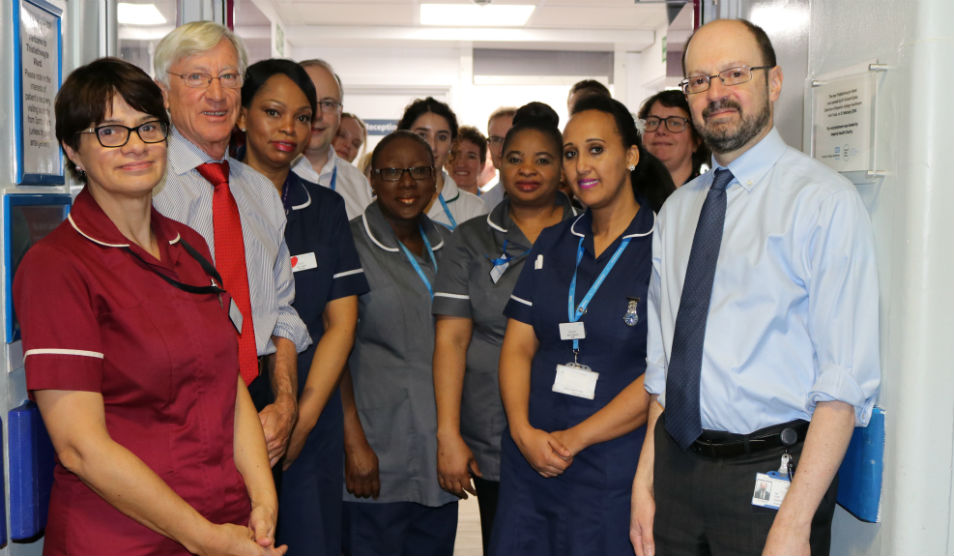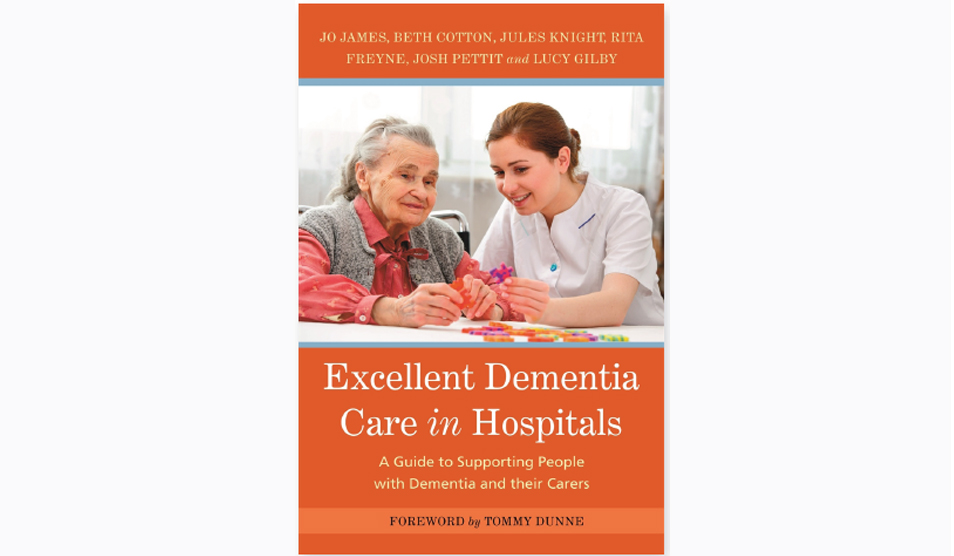More NoSH for patients with dementia
Patients with dementia receiving treatment at Imperial College Healthcare NHS Trust are being offered specialised support to help ensure they are eating and drinking enough while in hospital.
Poor nutrition is experienced by many patients with dementia who find it difficult to eat and drink enough to keep themselves well-nourished and hydrated. Many forget when they last ate and can struggle to eat large meals.
The dementia care team at Imperial College Healthcare NHS Trust has developed an innovative hydration and nutrition pathway for patients who have dementia to support them consume the amount they need in hospital. The Dementia Nutritional Support in Hospital Pathway (also known as NoSH) has three levels and aims to improve nutrition and hydration in patients with dementia by providing a tailored response to their needs. The development of NoSH has been supported by the recruitment of two healthcare support workers (HCAs) and is funded by Imperial College Healthcare Charity.
All patients who are admitted to the Trust with a diagnosis of dementia are automatically placed on the first level of the NoSH programme, known as ‘core support’. Patients have their weight monitored regularly and their food and fluid intakes recorded to help the nursing team ensure they are getting all they need. Patients are also given ‘bento boxes’ with healthy snacks providing them with access to nutritious foods on demand and sugar-free squashes to add to water to help keep their fluid levels up.
For patients who require a little more support, the team has developed the ‘enhanced’ and ‘intensive’ levels of the programme providing:
• one to one support for dementia patients who struggle to eat and drink enough
• daily reviews of the patient by the NoSH team
• development of eating and drinking goals for the patient in conjunction with their family and the nursing team
• use of music during meals which is scientifically proven to stimulate appetite
• providing five smaller meals a day (rather than the traditional three) which can be easier for some patients with dementia to manage
Jo James, dementia care lead at the Trust said:
“Good nutrition is a vital part of dementia patients’ recovery and goes hand-in-hand with treating their medical needs. Our new patient centred approach to nutrition and hydration allows us to keep a close eye on patients’ intake while they are on the wards, which aids a speedy recovery so they can return to their own home sooner.”
Ian Lush, chief executive of Imperial College Healthcare Charity said:
“The funds raised by Imperial College Healthcare Charity enable the Trust to provide patients with improved facilities which go beyond the everyday.
“We are pleased to be able to support this new approach to helping dementia patients with their eating and drinking. This is just one of a package of measures that we have worked with the Trust to introduce to enhance the experience of dementia patients in hospital.”
Notes to Editor
In recent months the Trust, with the support of the Charity, has introduced several new measures to improve the experience dementia patients at St Mary’s. These include:
• The redevelopement of Witherow ward and the introduction of an A&E cubicle both of which meet the specialist needs of dementia patients.
• The roll-out of a carer’s passport scheme that encourages and supports the carers of patients who are vulnerable or who have dementia to visit whenever they want to, outside of normal visiting hours.
• New activity packs to help keep dementia patients relaxed and occupied while they are in hospital.
• Craft workshops for dementia patients funded by the Charity and carried out by arts organisation Paper Birch



